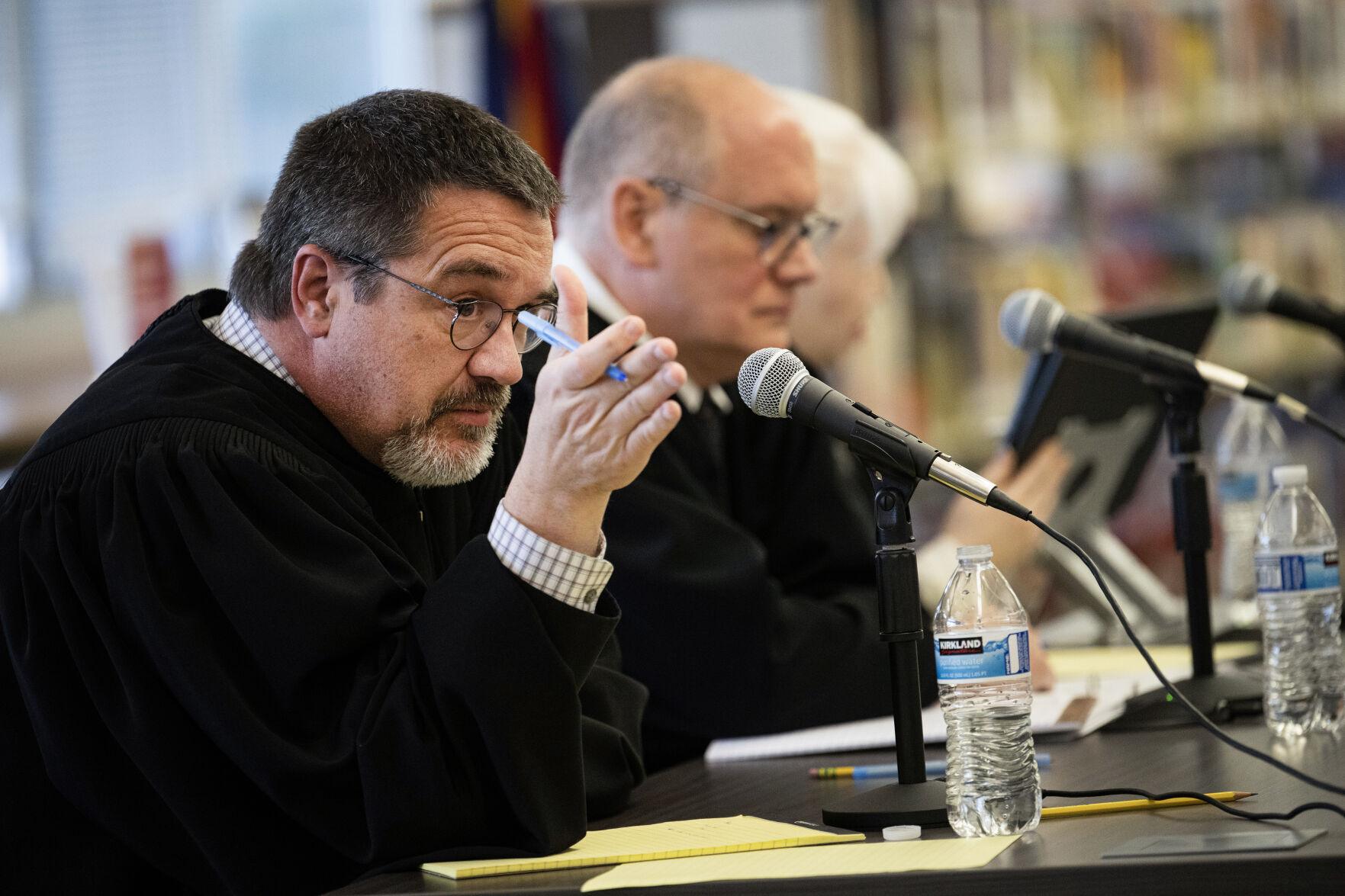Colorado appeals court issues rulings on drug money, Pueblo councilman’s vandalism

Colorado’s second-highest court on Thursday decided a pair of cases involving financial restitution to crime victims, finding defendants are not obligated to repay police departments for money used in drug purchases and also upholding a Pueblo council member’s duty to pay $3,800 for his vandalism.
Under Colorado law, most convictions require judges to consider whether a defendant must pay money to their victims for damage caused by their conduct. At the same time, defendants may commit in a plea agreement to paying certain costs beyond the scope of their conviction.
Previously, the Court of Appeals concluded that people who took money from law enforcement during covert drug operations could be required to pay it back as restitution. However, the appellate court has now called that obligation into question.
Nathan Hollis pleaded guilty to two drug distribution charges in Weld County. An undercover drug task force officer contacted him multiple times and gave Hollis money in exchange for narcotics. At sentencing, the prosecution asked Hollis to pay $1,640 in restitution – the amount law enforcement provided in the drug deals.
Hollis objected, noting the restitution law covers “money advanced by law enforcement agencies” and “extraordinary” investigation costs. To Hollis, the “buy money” fell into neither of those categories. District Court Judge Vincente G. Vigil disagreed and ordered Hollis to pay the amount.
On appeal, Hollis argued police did not “advance” him any money, as they simply paid for drugs in a transaction. The task force also had a budget for buy money, so it could not be an “extraordinary” expense. To the extent police wanted to recover the buy money after his conviction, Hollis blamed law enforcement for not charging him right away.
“Mr. Hollis’s convictions are for drug sales that occurred on June 25, 2019, and July 18, 2019, but police waited to arrest him until one month later, on August 23, 2019, despite the probability that this delay would diminish the likelihood of recovering the cash,” wrote public defender Lisa Weisz. “The commonplace police practice of delaying an arrest to build a bigger case to ensure conviction lacks any extraordinary quality.”
The Colorado Attorney General’s Office responded that agencies do not have a “plethora of money to waste” on drug buys, and it would be unfair to allow Hollis to “keep his ill-gotten gains or benefit from them without consequence.”
A three-judge panel for the Court of Appeals agreed with Hollis that the buy money was not an extraordinary cost of the investigation.
“It was money used solely to investigate drug-related crimes. And as officers of the Task Force testified, controlled buys occur several times per month using money specifically budgeted for that purpose,” wrote Judge Ted C. Tow III in the Oct. 5 opinion.
Case: People v. Hollis
Decided: October 5, 2023
Jurisdiction: Weld County
Ruling: 3-0
Judges: Ted C. Tow III (author)
Jaclyn Casey Brown
Karl L. Schock
The panel acknowledged the existence of a competing decision by the Court of Appeals from 2012, which found a law enforcement agency is a “victim” who is eligible to be repaid for the missing buy money. However, decisions of appellate panels are not binding on each other, and the panel in Hollis’ case did not agree with its counterpart from a decade earlier.
“The Task Force is not a victim under the restitution statute,” Tow wrote. “The task force simply spent money allocated to it ‘in order to fulfill (its) public function,’ which is investigating drug-related crimes. Rather, the victim of narcotics distribution is the public at large.”
The panel overturned Hollis’ $1,640 restitution order. With competing decisions in the Court of Appeals, the Colorado Supreme Court may choose to resolve the dispute if the prosecution pursues an appeal.
A spokesperson for Weld County District Attorney Michael Rourke declined to comment. Tim Lane, a staff attorney for the Colorado District Attorneys’ Council, said buy money is typically recovered in an investigation and he did not expect a significant impact to law enforcement from the decision.
The case is People v. Hollis.
Pueblo city councilman’s vandalism
In the second case decided on Thursday, Vicente Martinez Ortega challenged a judge’s order to pay $3,800 for damage he caused to the retaining wall of a Christopher Columbus statue. Martinez Ortega, who is a Pueblo city council member, damaged bricks in one of the walls in 2021 as part of a protest against the controversial statue.
Martinez Ortega pleaded guilty to a misdemeanor count of criminal mischief and his plea agreement acknowledged “causation for restitution purposes.” He disputed the $3,800 figure from the prosecution as too high, as surveillance footage only showed Martinez Ortega damaging one segment of the wall.
District Court Judge Amiel Markenson concluded Martinez Ortega’s damage to one segment “doesn’t mean that more couldn’t have been done,” as the other layers “may have fallen off due to weakness in the wall or things like that.” He granted the full restitution amount.
An appellate panel, by 2-1, upheld that decision. Even if Martinez Ortega did not do $3,800 worth of vandalism, the majority believed he admitted to causing the damage and committed to paying restitution in his plea agreement.
“Martinez-Ortega was on notice at the time he executed his plea agreement that (prosecutors) were seeking restitution for repairing the entirety of the east part of the wall,” wrote Judge Craig R. Welling for himself and Judge W. Eric Kuhn.
Case: People v. Martinez Ortega
Decided: October 5, 2023
Jurisdiction: Pueblo County
Ruling: 2-1
Judges: Craig R. Welling (author)
W. Eric Kuhn
Terry Fox (dissent)
Judge Terry Fox indicated she would have overturned the restitution order, as nothing in Martinez Ortega’s plea agreement denied him the ability to challenge the amount he owed.
“Martinez-Ortega admitted to knowingly causing damage to the wall by removing ‘some bricks’ – not knowingly damaging the entire wall,” she wrote. As for Markenson’s explanation that more bricks could have fallen “due to weakness … or things like that,” Fox pointed out there was no evidence supporting that theory.
The case is People v. Martinez Ortega.














